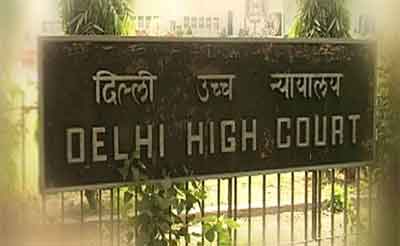- Home
- Medical news & Guidelines
- Anesthesiology
- Cardiology and CTVS
- Critical Care
- Dentistry
- Dermatology
- Diabetes and Endocrinology
- ENT
- Gastroenterology
- Medicine
- Nephrology
- Neurology
- Obstretics-Gynaecology
- Oncology
- Ophthalmology
- Orthopaedics
- Pediatrics-Neonatology
- Psychiatry
- Pulmonology
- Radiology
- Surgery
- Urology
- Laboratory Medicine
- Diet
- Nursing
- Paramedical
- Physiotherapy
- Health news
- Fact Check
- Bone Health Fact Check
- Brain Health Fact Check
- Cancer Related Fact Check
- Child Care Fact Check
- Dental and oral health fact check
- Diabetes and metabolic health fact check
- Diet and Nutrition Fact Check
- Eye and ENT Care Fact Check
- Fitness fact check
- Gut health fact check
- Heart health fact check
- Kidney health fact check
- Medical education fact check
- Men's health fact check
- Respiratory fact check
- Skin and hair care fact check
- Vaccine and Immunization fact check
- Women's health fact check
- AYUSH
- State News
- Andaman and Nicobar Islands
- Andhra Pradesh
- Arunachal Pradesh
- Assam
- Bihar
- Chandigarh
- Chattisgarh
- Dadra and Nagar Haveli
- Daman and Diu
- Delhi
- Goa
- Gujarat
- Haryana
- Himachal Pradesh
- Jammu & Kashmir
- Jharkhand
- Karnataka
- Kerala
- Ladakh
- Lakshadweep
- Madhya Pradesh
- Maharashtra
- Manipur
- Meghalaya
- Mizoram
- Nagaland
- Odisha
- Puducherry
- Punjab
- Rajasthan
- Sikkim
- Tamil Nadu
- Telangana
- Tripura
- Uttar Pradesh
- Uttrakhand
- West Bengal
- Medical Education
- Industry
Use Rs 100 crore fund for rare diseases: Delhi HC directs Health Ministry

New Delhi: The Joint Secretary of the Ministry of Health & Family Welfare (MoH&FW), Lav Aggarwal, gave a presentation on the National Policy for Treatment of Rare Diseases to Justice Manmohan in the Delhi High Court and highlighted the important aspects.
He mentioned that there is no specific definition of rare diseases since there is no epidemiological data and the reliability of the estimates are questionable. There is a need to arrive at our own estimate. He also pointed out that there is a need to balance out the competing priorities of public health.
While giving the presentation, Aggarwal added, "The biggest challenge with rare diseases is that they have mimicking symptoms of other diseases and thus, take years to get diagnosed. Moreover, there is a low pool of patients for research and hence, in the process of covering up for the cost of R&D, the treatment is expensive. Thus, strong measures need to be taken to make the diagnosis and treatment process easier. In this regard, the policy proposes an initial corpus of Rs 100 crore for funding treatment of rare genetic diseases. The state governments should come forward and request how many funds they need and for which diseases which the centre can provide from the Rs. 100 crore corpus fund under the National Health Mission."
With respect to the Rs. 100 Crore corpus fund, Justice Manmohan emphasised that the fund should not get lapsed. Since the financial year cycle might be from January to December now, there is a possibility that this fund would not be used and would go waste.
He suggested that the money should be at the disposal of individual hospitals like AIIMS so that the patients can directly benefit. Alternately, the Justice recommended that the money should be put into a revolving fund so that interest is received on the amount. In any case, he stressed that the money should not get lapsed and should directly benefit the patients.
"The Honourable Court is very sensitive to the immediate implementation and utilisation of the Rs. 100 crore corpus. It also rightly mentioned that the fund may be allocated and transferred to AIIMS and immediate steps need to be taken by Health Ministry to form medical expert committees of physicians at central and state levels. The states should screen and recommend patients based on standard formatted parameters and severity of the disease. Nonetheless the Rs. 100 crore allocation should be carried forward in the next financial year with a revised amount as, at present, the fund is too less to treat all diagnosed patients", Manjit Singh (President, Lysosomal Storage Disorders Society (LSDSS)) commented.
The policy also proposed that an Inter-ministerial consultative committee and a technical cum administrative committee be formed. The consultative committee would coordinate the initiatives taken by the different ministries and departments.
The technical committee would be formed at the state as well at national levels for management of and release of corpus funds and developing various technical requirements for identification and treatment of rare diseases. Going forward, these committees should be set up within the next three weeks (by August last week).
Lauding the efforts of the Ministry, Justice Manmohan said, "The presentation has been very helpful in understanding the concept of rare diseases. However, some urgent orders are required to make the National Policy functional at the ground level. The two committees need to be appointed within a period of three weeks. The Ministry is directed to file a status report on or before November 30."
Jurist Advocate Ashok Agarwal who has been fighting for rare disease patients commented, "The National policy is a landmark step. However, the policy can only be tested on the basis of the actual number of patients getting treatment. The patients should not start applying to the Delhi government for treatment and these applications should start getting processed."


